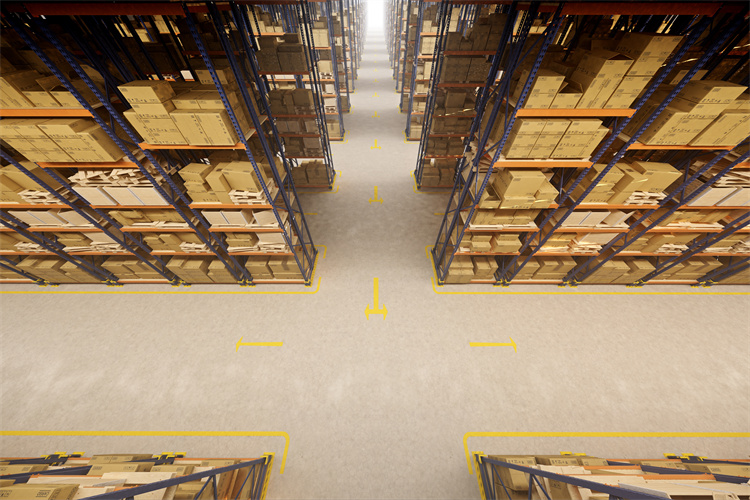Understanding the Complexities of Cold Chain Logistics

Cold chain logistics refers to the transportation and storage of temperature-sensitive products, ensuring they remain within a specified temperature range. This process is crucial for preserving the quality and safety of perishable goods, such as food and pharmaceuticals. Proper temperature control prevents the growth of harmful bacteria, reducing the risk of foodborne illnesses and ensuring medicines and vaccines remain effective. However, the industry faces significant challenges. For instance, the biopharma sector loses about $35 billion annually due to failures in temperature-controlled logistics. These challenges highlight the importance of maintaining stringent temperature controls throughout the supply chain.
Key Challenges in Cold Chain Logistics

Cold chain logistics presents several challenges that require careful navigation to ensure the safe and efficient delivery of temperature-sensitive goods. These challenges span regulatory, technological, and operational domains. cold chain logistics
Regulatory Compliance
Understanding Global Regulations
Regulatory compliance plays a crucial role in cold chain logistics. Different countries have varying regulations that govern the transportation and storage of perishable goods. Companies must understand these global regulations to ensure product safety and quality. For instance, the European Union and the United States have stringent guidelines for the handling of pharmaceuticals and food products. Adhering to these regulations helps maintain the integrity of the cold chain and prevents spoilage.
Impact of Non-Compliance
Non-compliance with regulatory standards can have severe consequences. Companies may face hefty fines, product recalls, and damage to their reputation. More importantly, non-compliance can compromise consumer safety. For example, improperly stored vaccines may lose their efficacy, posing health risks. Therefore, maintaining compliance is not just a legal obligation but a critical component of ensuring consumer safety.
Technological Challenges
Integration of IoT and Sensors
Technology plays a pivotal role in enhancing the efficiency of cold chain logistics. The integration of IoT and sensors allows for real-time monitoring of temperature and humidity levels. These technologies provide valuable data that help in maintaining the required conditions for perishable goods. However, integrating these technologies into existing systems can be challenging. Companies must invest in infrastructure and training to effectively utilize these advancements.
Data Management and Analysis
The vast amount of data generated by IoT devices and sensors presents another challenge. Efficient data management and analysis are essential for making informed decisions. Companies need robust systems to process and analyze this data to predict potential issues and optimize operations. Advanced analytics can help identify patterns and trends, enabling proactive measures to prevent disruptions in the cold chain.
Operational Challenges
Maintaining Temperature Integrity
Maintaining temperature integrity is a fundamental aspect of cold chain logistics. Even minor fluctuations can lead to spoilage and loss of product quality. Companies must implement stringent controls and monitoring systems to ensure consistent temperature maintenance. This involves using specialized packaging and equipment designed to withstand various environmental conditions.
Transportation and Storage Issues
Transportation and storage present significant challenges in cold chain logistics. Inadequate infrastructure, such as insufficient refrigerated storage facilities, can disrupt the supply chain. Additionally, transportation delays due to weather conditions or logistical issues can compromise the integrity of temperature-sensitive goods. Companies must develop contingency plans and invest in reliable transportation networks to mitigate these risks.
JUSDA's Role in Cold Chain Logistics
JUSDA stands as a leader in cold chain logistics, leveraging advanced technologies and best practices to ensure the safe and efficient transport of temperature-sensitive goods. Their commitment to innovation and customer-centric solutions sets them apart in the industry.
Advanced Technologies
Role of Blockchain in Traceability
Blockchain technology plays a crucial role in enhancing traceability within cold chain logistics. JUSDA utilizes blockchain to create a transparent and immutable record of each transaction and movement within the supply chain. This technology ensures that all parties have access to real-time data, reducing the risk of errors and fraud. By implementing blockchain, JUSDA enhances the reliability and integrity of the cold chain, providing clients with peace of mind regarding the safety and quality of their products.
Use of AI for Predictive Analysis
Artificial Intelligence (AI) is another key component of JUSDA's technological arsenal. AI enables predictive analysis, allowing JUSDA to anticipate potential disruptions and optimize operations accordingly. By analyzing vast amounts of data, AI identifies patterns and trends that inform decision-making processes. This proactive approach minimizes risks and enhances the efficiency of cold chain logistics, ensuring timely delivery and maintaining product integrity.
Best Practices in Operations
Efficient Route Planning
Efficient route planning is essential for maintaining temperature control and minimizing transit times in cold chain logistics. JUSDA employs sophisticated algorithms and real-time data to optimize delivery routes. This approach reduces fuel consumption and emissions, aligning with JUSDA's commitment to sustainability. By prioritizing efficient route planning, JUSDA ensures that temperature-sensitive goods reach their destinations promptly and in optimal condition.
Staff Training and Awareness
JUSDA recognizes the importance of well-trained staff in executing successful cold chain logistics operations. Comprehensive training programs equip employees with the knowledge and skills necessary to handle temperature-sensitive products. JUSDA emphasizes the importance of awareness and adherence to best practices, ensuring that all team members understand their roles in maintaining the integrity of the cold chain. This focus on staff training enhances operational efficiency and reduces the likelihood of errors.
Case Studies
Successful Implementation Examples
JUSDA's success stories in cold chain logistics highlight their expertise and commitment to excellence. For instance, Client A experienced significant improvements in supply chain efficiency after partnering with JUSDA. By implementing tailored solutions, JUSDA streamlined operations and enhanced product quality, resulting in increased customer satisfaction. These real-world examples demonstrate JUSDA's ability to deliver transformative results for their clients.
Lessons Learned from Failures
Learning from past failures is crucial for continuous improvement in cold chain logistics. JUSDA analyzes previous challenges to identify areas for enhancement. By understanding the root causes of failures, JUSDA develops strategies to prevent similar issues in the future. This commitment to learning and adaptation ensures that JUSDA remains at the forefront of the industry, consistently delivering high-quality services to their clients.
Future Trends in Cold Chain Logistics

Emerging Technologies
Potential of Autonomous Vehicles
Autonomous vehicles hold significant promise for the future of cold chain logistics. These vehicles can operate without human intervention, reducing the risk of human error and enhancing efficiency. By utilizing advanced sensors and navigation systems, autonomous vehicles maintain precise temperature control during transit. This technology ensures that perishable goods remain within the required temperature range, preserving their quality and safety. As companies continue to invest in autonomous vehicle technology, the cold chain logistics industry will likely see improvements in delivery speed and reliability.
Innovations in Packaging Solutions
Innovations in packaging solutions play a crucial role in advancing cold chain logistics. New materials and designs offer enhanced insulation and protection for temperature-sensitive products. For example, phase change materials (PCMs) can absorb and release thermal energy, maintaining a stable temperature inside the packaging. These innovations help extend the shelf life of perishable goods and reduce spoilage. Additionally, smart packaging equipped with sensors provides real-time data on temperature and humidity levels, allowing companies to monitor conditions throughout the supply chain. These advancements contribute to more efficient and reliable cold chain logistics operations.
Evolving Regulations
Anticipated Changes in Global Standards
Global standards for cold chain logistics are evolving to address the growing demand for temperature-sensitive products. Regulatory bodies are implementing stricter guidelines to ensure the safety and quality of perishable goods. Companies must stay informed about these changes to remain compliant and competitive. Anticipated updates may include more rigorous temperature monitoring requirements and enhanced traceability measures. By adhering to these evolving standards, companies can improve their cold chain logistics processes and build trust with consumers.
Impact on International Trade
Changes in global regulations will significantly impact international trade within the cold chain logistics sector. Stricter standards may lead to increased costs for compliance and infrastructure upgrades. However, these changes also present opportunities for companies to differentiate themselves by demonstrating their commitment to quality and safety. By investing in advanced technologies and best practices, companies can navigate regulatory challenges and capitalize on new market opportunities. As international trade continues to expand, cold chain logistics will play a vital role in ensuring the safe and efficient transport of temperature-sensitive goods across borders.

JUSDA Solutions
To provide you with professional solutions and quotations.
Cold chain logistics presents a complex landscape, demanding precise temperature control and regulatory compliance. By leveraging advanced technologies and best practices, businesses can ensure product integrity and safety. Staying updated with emerging trends, such as autonomous vehicles and innovative packaging, is crucial for maintaining competitive advantage. Continuous improvement remains vital, as companies must adapt to evolving regulations and market demands. Embracing innovation and sustainability will help build resilient supply chains, ensuring that temperature-sensitive products reach consumers in optimal condition, fulfilling their intended purpose effectively.
See Also
The Importance of Security in Supply Chain Logistics
Boosting Warehouse Efficiency with Robotics in Logistics
Tomorrow's Logistics Revolution: The Role of AI in Supply Chains
Achieving High-Tech Manufacturing Success Through Lean Logistics
The Influence of Supply Chain Innovation on Logistics Transformation
